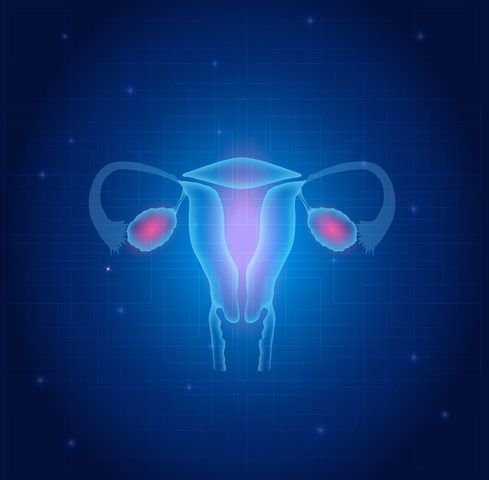Ovarian failure is a rare, but life-changing side effect of chemotherapy, triggering premature osteoporosis and at times preventing women from having biological children.
But now, for reportedly the first time, researchers were able to successfully transplant an ovary from one primate to another, even managing to restore a monthly cycle, showing promise for patients who enter early menopause.
The study, “Allogeneic transplantation of ovarian tissue with sole use of novel immunomodulator, preimplantation factor (PIF), restored ovarian function in baboons,” was presented at the American Society for Reproductive Medicine (ASRM) 2016 Scientific Congress & Expo Oct. 15-19 in Salt Lake City.
In premature ovarian failure, women younger than 40 lose normal function of their ovaries. When ovaries fail, they stop producing normal amounts of estrogen and eggs are not released regularly. As a result, women often become infertile. Women with premature ovarian failure can, however, have irregular or occasional periods for years and might even become pregnant.
“Firstly, an early menopause means that women cannot fulfill their longing for a child and, secondly, the associated drop in hormone levels can prematurely trigger osteoporosis or other menopausal complications,” Michael Feichtinger, lead author of the study from MedUni Vienna’s Department of Obstetrics and Gynecology, said in a news release.
Although allo-transplantation (transplanting cells, tissues, or organs to a recipient from a genetically non-identical donor of the same species) of ovarian tissue can be a useful option for women with premature ovarian failure, immune rejection has been a major barrier.
The research team now attempted, for the first time, to perform allogenic ovary transplants using baboons. The procedure was performed at the World Health Organization (WHO) Institute of Primate Research in Nairobi, Kenya, in two baboons treated with a new immunosuppressive drug (PIF; preimplantation factor) both before and after the transplant.
The transplant was successful in one of the baboons, and this animal was even able to have a functional monthly cycle. It was not successful in the second baboon.
“Notwithstanding this, the study is still very promising,” Feichtinger said. “These results would suggest that successful ovarian transplantation might be possible in future. The researchers also demonstrated that the new immunosuppressive agent PIF functions well without side effects, and this could open up new potential applications for other types of transplant procedure.”
The researchers are conducting more studies to gain additional insights about which factors are important to the success of the transplant. The findings may help some women who enter early menopause due to chemotherapy, and possibly women who underwent bilateral oophorectomy (removal of both ovaries) to treat their ovarian cancer.

